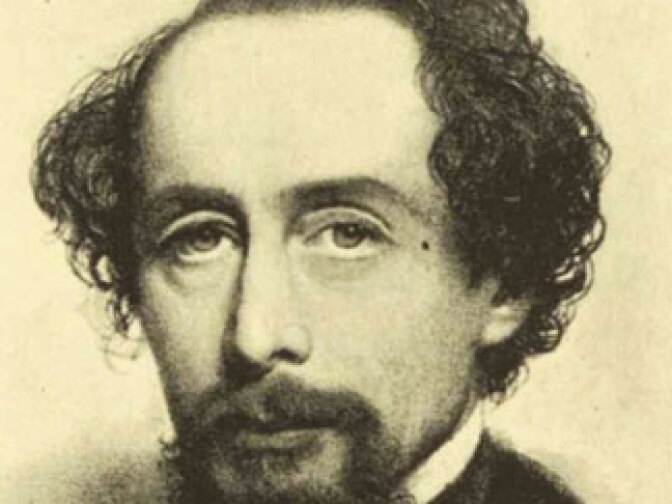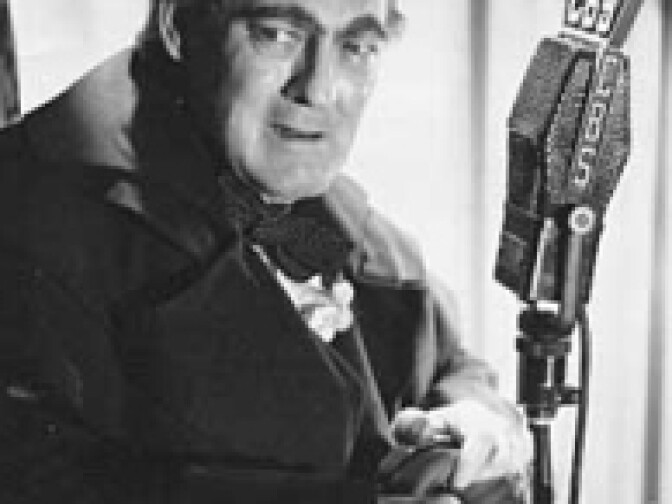This story is free to read because readers choose to support LAist. If you find value in independent local reporting, make a donation to power our newsroom today.
This archival content was originally written for and published on KPCC.org. Keep in mind that links and images may no longer work — and references may be outdated.
"A Christmas Carol Redux"
You might think “A Christmas Carol,” Charles Dickens’ fable of redemption, is just a part the holiday. But in fact, it pretty much started the whole thing. This weekend, KPCC’s Off-Ramp program, hosted by John Rabe, takes an in-depth look at the Dickens’ classic on “A Christmas Carol Redux.”
Early in Dickens’ “A Christmas Carol,” Scrooge scores points against Christmas that are valid today -- especially today – when he says:
What’s Christmastime to you but a time for paying bills without money? A time for finding yourself a year older and not an hour richer?
And then Scrooge delivers one of the best lines in literature:
If I could work my will, every idiot who goes about with “Merry Christmas!” on his lips would be boiled with his own pudding and buried with a stake of holly through his heart.
“A Christmas Carol” was lucrative from the start. Dickens himself read it to packed houses, and it’s a staple of film and theatre.
Playwright Doris Baizley takes on the commercialization of “A Christmas Carol” in her short play, “My Carol,” about a production designed to maximize profits.
One set. No snow machines, no plum pudding, no period costumes. Handful of actors, prop truck, and that’s it. The best. Hey, my Scrooge doesn’t have to be an old guy. And my Tiny Tim, doesn’t have to be a kid. No kids in my carol, not one. The Crachitt family at the dinner table? Hand puppets. Hah?
Gerald Charles Dickens, Charles Dickens’ great great grandson, might perform the most stripped-down Carol ever. It’s just him, doing all the voices. “If I’m playing it in a theatre,” he says, “I like to play it fairly dark, fairly somber, because it’s a monumental thing that’s happening, that Ebeneezer is going through all of this. And to heighten the sense of joy at the end you have to sort of plummet him into the depths.”
But what is happening to Scrooge? Is it a wonderful transformation … or a conversion? And if it’s a conversion, then from what? Maybe when he wrote that Scrooge was “squeezing, wrenching, grasping, clutching,” Dickens just meant to portray Scrooge as a miser. But remember, Dickens got in trouble for the horrible character Fagin in “Oliver Twist,” who was specifically Jewish.
(Early illustration of Fagin from Dickens' "Oliver Twist")
Attacking “A Christmas Carol” as anti-Semitic may seem harsh at Christmastime, but how do you think it feels to watch the world embrace a story featuring such common stereotypes?
David Grimm wrote the play "A Christmas Golem," narrated by an explicitly Jewish Scrooge who is eventually tortured into converting by his disgruntled clerk, Robert Cratchit.
Now it comes time for Chanukah, and I’m closing for the holiday, I’m sitting at my desk, and Robert says to me, “Do I get Christmas off as well?” I say, “Robert, you can have Chanukah or you can have Christmas, but not both. This is a business after all.”
Former UCLA English Professor Judith Rosen says Dickens was not on an anti-Semitic campaign, but he certainly reflected much of the anti-Semitism of his time. However, that taint aside, she says “A Christmas Carol” hit a nerve that Dickens’ other stories didn’t. It was so successful, she says, because Dickens personalized the lesson of compassion, charity, and transformation. And in doing so, Dickens transformed Christmas. “Christmas used to be, in England before Dickens’ time, a very public, very outdoor festival. One that celebrated the bonds between say the lord of a manor, or a large employer and his workers. And Dickens popularized, through ‘A Christmas Carol’ and through his earlier ‘Pickwick Papers’ a much more private, much more family celebration.”
Listen Saturday at noon and Sunday night at 7 for “A Christmas Carol Redux” on Off-Ramp, featuring more of the productions excerpted above, including a full broadcast of the classic Lionel Barrymore version.










